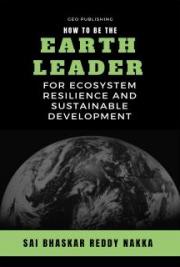33. Can a man take fire . . . .
Just before the German waste plan was called-off, and when I thought that fear amongst the media might have subsided, I had a depressing encounter with a journalist on the subject of permissible language. Most local newspapers were far touchier about ReChem than the South Wales Argus was. I felt that the South Wales Echo, for one, was being mealy-mouthed over German waste and so I wrote to Echo journalist Mark Bristow. He agreed with me and illustrated the fact that fear still abounded, by referring to another newspaper and another journalist. Mark said that he knew of an article originally containing the word toxic and that the word was removed for fear of offending Rechem. This meant that despite the way events had gone against the company, it was still feared that solicitors could pounce on a single word and make it libellous. I felt that such fear should now be subsiding, but echoes of all the writs issued by Rechem were still affecting people and the newspaper’s difficulty with the word toxic reminded me of why I had become a libel victim. I’d learned that the power in libel cases lay with the already powerful and that science could hardly get noticed in the arcane system. I had feared that I would be judged on the basis of opinions rather than facts and that the important opinions would be those of the government, the regulators and the company.I had set out with a view that many in high authority were wrong, yet with a firm belief that the passing of time would serve to correct them and that my writ of 1989 would be viewed differently in a more enlightened climate at some time in the future. In April 1993, on the day the South Wales Argus broke the University’s crucial news about contamination and the Welsh Office offered its own air-brushed interpretation of the data, I delved into the details of the 250-page UEA document. There was no doubt that the word ReChem was now synonymous with contamination in New Inn. Contemporaneously, The Royal Commission on Environmental Pollution reflected the enlightenment I was now experiencing in its own comprehensive report on waste incineration. Standing alone in the space of an otherwise blank page at the beginning of the Royal Commission’s report was a homily from Proverbs 6.27: “Can a man take fire into his bosom and his clothes not be burned?” It seemed an ambivalent warning about waste incineration which, four years earlier, I would have been forgiven for taking personally. I felt I was now ready to answer the cautionary question with a very personal “Yes”.
During the first few years of working on my defence and when much of it contained complex theory rather than hard facts, if my legal people ever saw less light at the end of the tunnel than I did, then I could excuse that. However, once the bureaucratic barricades around ReChem began to crumble, and evidence piled-up in my favour, any doubts about the prospects of my success disappeared from the signals I received from London. The takeover of ReChem by Shanks and McKewan seemed to buy me time to consolidate the test results, the telling-offs and pollution trials that began to buffet the company. The list of emissions, incidents and accidents grew longer by the month. Legal orders were taken out against the company by the regulators who had previously stood shoulder-to-shoulder with Rechem. Pollution of sewage by foreign chemicals entered the equation and ReChem’s Pontypool plant was fined for the first time. The once vaunted, virile, view that PCBs and dioxins were really quite cuddly chemicals was proved untenable and safety standards for them became much tighter. Even the government accepted that incinerators could create contamination and, with an about-turn, the Welsh Office finally agreed that ReChem’s incinerator had done just that. Following all the publicity and the political embarrassment connected with Rechem, the writing was now on the wall for the end of the free trade in hazardous waste. ReChem’s reputation was wounded and its balance sheet was suffering. When all these shifts in circumstances were bringing victory within sight I asked my solicitor Sally to do more than eliminate the monetary liability from the legal action. The defence of the writ wasn’t just about saving my skin; it was about the progress of the campaign and in particular about the potential of the company to scare people. The terms of the most recent settlement suggestion would not have done enough to prevent that happening in future.
The initial reason for the writ, which was the Radio 4 World Tonight broadcast over which the BBC had so profusely apologised, had taken a back seat in my opponent’s agenda after a couple of years into my case. After 1991, there had been no further argument about my portrayal of technology, regulation and waste importation although Rechem could have returned to it at anytime. From then on everything had focussed on the Evening Standard’s whimsical article about eye defects, until it was eventually accepted that I had not made the complained-of comments on eyes. In proposing a statement to wrap things up, Nabarro Nathanson included the section: “At no time did the Defendant make any such allegation to the Evening Standard. The Evening Standard accordingly wrongfully misrepresented Mr. Powell. He has never made the allegation concerned . . .” I could accept that part of the statement, but the proposal continued: “. . . nor any similar statement, nor would he do so. Further, the Defendant has not and does not believe there is any substance in the allegation.”
I couldn’t agree with the additional section of the statement for two reasons. One was that similar was restrictive, because when speaking of ReChem, mentioning chemicals and eye defects together was generally considered to be taboo. I didn’t think that it should be. Secondly, asking for me to go on the legal record as stating that I believed there was no substance in allegation about the eye defects was pushing the science of the chemicals too far in ReChem’s favour. I could neither say there was substance in such an allegation nor that there wasn’t substance in it. In addition, why should I, anyway, have to make any comment on an allegation which even ReChem now agreed I had not made? It seemed like the trick I had originally suspected it to have been, so I modified the other side’s proposal and sent it back to Sally. In the negotiations that followed, trying to cling on to the eye defect clause inspired Rechem’s solicitors to dig-up a couple of old Newspaper articles where I was reported to be talking about the subject. The way I saw it was that the articles could not be interpreted as my making a causal connection between ReChem and eye defects. I had given Nabarro Nathanson more credit than I now thought was due in their misunderstanding of such things, but their tenacity underlined my assumption that they really wanted to prevent the mention of eye defects when speaking of the chemicals ReChem dealt with. I couldn’t do that, for the smell, the smoke, the fires and explosions were just the superficial reasons for my concern and the harmful potential of the chemicals was the fundamental reason for my involvement in the campaign.
With Sally’s help I defeated the proposal for me to accept Rechem’s funny form of logic and with no more mention of the World Tonight broadcast it then became a matter of fine tuning the words to be read out in court by my opponents in closing the case. A necessary part of that statement was not only the formal withdrawal of the claims for slander and libel but an assurance that ReChem would not claim costs against me. When everything else seemed to be settled only the un-retracted gagging clause remained. Rechem had wanted the condition that I made no statements to anyone about the case, after the case was closed. Now the token offering of a joint press statement, which was to be followed by my silence, had no more attraction for me than total silence. With Rechem’s problems outside the court multiplying I wasn’t the one in a hurry and the demand for any form of silence was finally dropped. There was just one further unexpected hitch, in that my opponents wanted to take the unusual step of keeping their legal documents confidential. It was normal for the pleadings to be made available for public scrutiny on the day of the hearing. Sally spotted Nabarro Nathanson’s attempt to evade that convention and she managed to intervene in time for the documents to be made public.
I had originally faced the prospect of compensating for massive business losses, paying the costs of the action against me, agreeing not to criticise the company, withdrawing from campaigning and apologising to Rechem. With all those demands now near the point of extinction, I reminded Sally that I thought our own costs should be paid by ReChem. I was certainly prepared to plough on for costs but she thought it wasn’t worth the trouble. With Greenpeace happy that their investment had been sufficiently rewarded, I took her advice and we let the costs rest.
I got everything I’d set out for: there was no financial compensation for ReChem, no costs to be paid to the company, no injunction against me, no priceless apology from me and I won the freedom to speak-out about it all more strongly than ever before. I walked from court, on 26th May 1993, hoping that the company’s use of litigation to quell its critics was consigned to history. My hope was fulfilled and there were to be no more writs for anyone. When I left the High Court with Sally, Nikki and Christian, I looked back at the heavenly architecture for which my love was undiminished and I emerged from the walls of a time warp where privilege had, this time, not prevailed. In succeeding, I answered The Royal Commission’s biblical question, by taking on the fire and remaining unscathed. The boy from Pill remembered his parents’ pride in him and he forever felt a bit above the BBC. Free from fear, I continued to campaign against what remained wrong. Finally, after eighteen years of campaigning, I saw the fire of the infamous incinerator extinguished forever and I rested.
THE END







